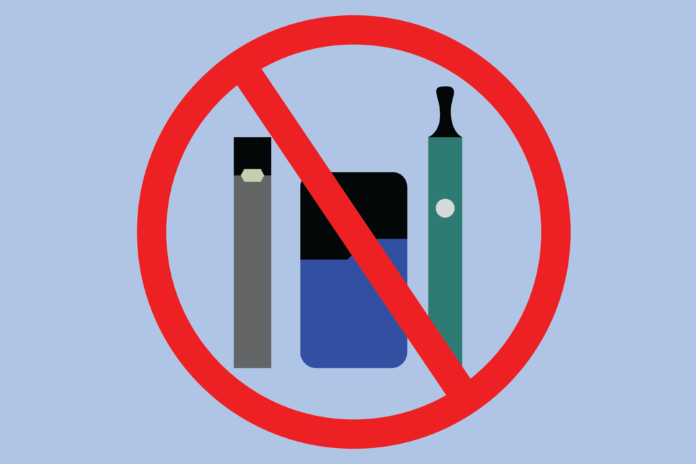Flavored tobacco bans to also be implemented in Woodland, West Sacramento
The City of Davis recently announced that a flavored tobacco ban is under discussion following Yolo County’s Tobacco Retail Permit program that was implemented in 2007, according to a city staff report. The “Tobacco Retail License ordinance” was created to monitor and regulate the sale of tobacco to minors and, now, a flavored tobacco ban is being discussed as an extension of the ordinance.
Woodland and West Sacramento will also be implementing similar bans on Apr. 1 and Apr. 15, respectively.
According to The California Department of Public Health, 80.8% of young people between the ages of 12 and 17 who have used tobacco began by using flavored tobacco products. Thus, “banning the sale of flavored tobacco and flavored tobacco products within city limits is a start in addressing the concern that flavored tobacco products are primarily marketed to youth,” according to the staff report.
Dan Carson, a Davis City Councilmember and a previous director of health policy analysis for the nonpartisan California Legislative Analyst’s Office, explained the role of the council in the discussion of the flavored tobacco ban.
“Basically, what we did was give instruction to our city staff to begin working on an update to our existing restrictions on tobacco licenses to add a ban on flavored tobacco products to that list,” Carson said. “The city has tied in, for many years, to a Yolo County program by which businesses that wish to sell tobacco products get a retail permit under certain conditions.”
The ban has not yet been implemented and is still being finalized, according to Carson.
“It’s not been implemented yet in the City of Davis,” Carson said. “In our case, we’ve directed city staff to begin work on a new city ordinance that would make these changes and so there’s a regular process by which that is done — [it] requires a certain amount of public notice once the appropriate legal language comes before us for approval.”
One of the aims of the flavored tobacco ban is to reduce flavored tobacco consumption among minors. Kelly Stachowicz, the assistant city manager for Davis, explained the impact that the flavored tobacco ban would have on the Davis community.
“The proposed ban is really aimed at making it more difficult for underage individuals to purchase flavored tobacco or flavored tobacco products,” Stachowicz said. “A lot of the products have been geared towards enticing a younger crowd of people to purchase them — they look like candy or something like sweets, things like that. So this is an effort to try to curb the ability for young people to purchase [such] products.”
Studies have shown that people who develop addictions to tobacco or nicotine products often start using these products from a young age, such as at 14 or 15 years old, according to Stachowicz. Eighty percent of young people who have used tobacco products at least once in their lives started by using flavored products, according to the staff report.
Elisa Tong, an associate professor of internal medicine, physician and researcher in tobacco policy and cessation, provided further details about the impact that the proposed ban would have on young people.
“A ban on the sales of flavored tobacco products is an important first step to help youth and young adult initiation of tobacco and encourage current tobacco users to quit,” Tong wrote via email. “From the California Student Tobacco Survey (2017-18), one in eight California high school students use a tobacco product (e.g. electronic smoking devices, little cigars or cigarillos, hookah), and 85% of those have flavors.”
Carson noted that the number of young people using tobacco products has been on the rise in recent years, which contrasts with the decline that occurred before the introduction of products such as e-cigarettes and flavored tobacco.
“There has been a trend across the state where the number of youths who were smoking in other ways had been in dramatic decline partly because of public education happenings then as it had run for many years,” Carson said. “But then the advent of flavored tobacco and e-cigarettes and the like — suddenly we’ve seen a trend across the state, and here in Davis as well, of a huge rebound in use of these products.”
The use of products such as e-cigarettes and flavored tobacco has possible implications for young people. In a 2016 survey, it was found that 84% of the 85 surveyed “tobacco retail stores” in Yolo County sold little cigars in flavors that are suitable for children, such as strawberry and grape. Eighty percent of the time, they were sold for less than $1, according to the city staff report.
“The CDC has noted that the combination of flavors, nicotine (especially with the new nicotine salts), and marketing tactics have all contributed towards what the Surgeon General has deemed a youth epidemic in vaping,” Tong wrote.
Although tobacco products cannot be sold to those under 21 in California, “most young people get their products from informal sources and online purchasing is easy to circumvent,” according to Tong.
Carson noted that the use of such products could lead to a cycle of addiction.
“So, we’re very concerned that this will lead to another generation being hooked on nicotine, with potentially terrible health effects,” Carson said. “Our intention is to try to make these products unavailable in our community and therefore prevent this from continuing.”
Written by: Shraddha Jhingan — city@theaggie.org




